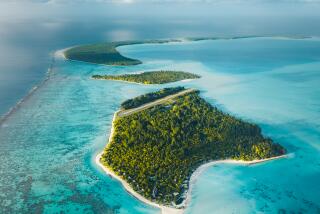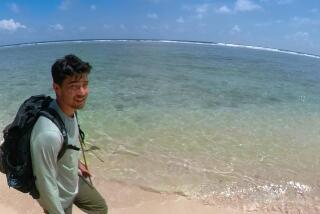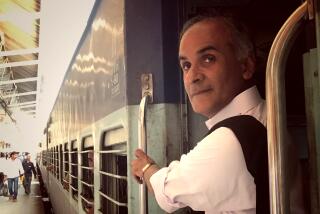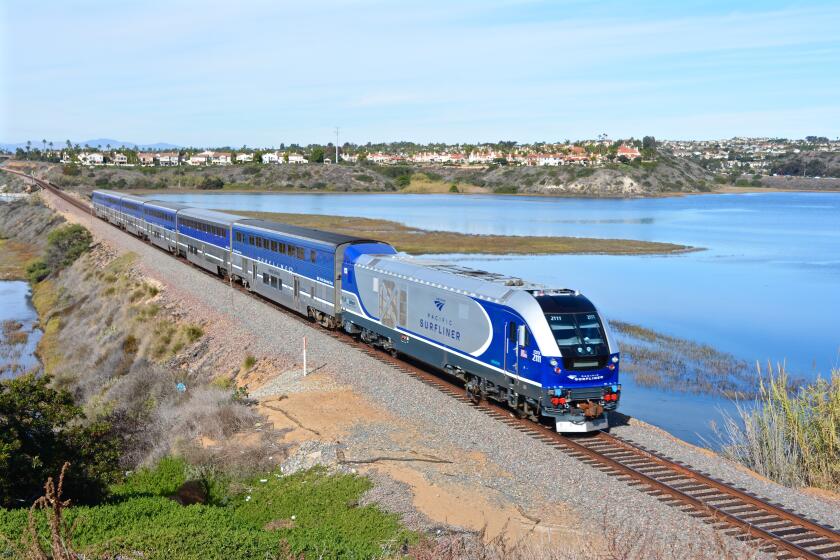Sin Gets Around ... Even in Paradise
- Share via
Ah, the simple life. Paris Hilton isn’t the only one who dreams of it. Millions of urbanites across the Western world yearn for the organic, the pristine, the untouched. They imagine that life was better in the good old days, back before everything became so darn complicated.
This illusion is partly what drove the intense media coverage of the recent trials on Pitcairn, the tropical island in the Pacific between New Zealand and South America. Last week, six men on the tiny isle, population 47, were convicted of raping and assaulting young girls over four decades.
How could this happen, the world wondered collectively, in a place that lacks the corrupting influences of postmodern life? No pollution, no godless intellectuals, no designer drugs or assault weapons.
But I have no such illusions. Six years ago, I actually visited paradise. After pinning my Last Will and Testament to my bulletin board, I flew to Cape Town, South Africa, where I boarded a research vessel bound for a volcanic island that rises out of the Atlantic Ocean half way between South Africa and Argentina. After a terrifying and exhilarating voyage, I spent one of the most miserable months of my life on Tristan da Cunha, the most remote inhabited island on Earth.
Living as they do, six days off the coast of Africa, Tristanians naturally distrust outsiders. Lacking immunity to the germs of the mainland, old people scurry inside at the sight of foreigners. With only seven surnames on their piece of rock, the island’s 300-odd residents are all related. Like a family, islanders share and take care of each other.
Most of Tristan’s few visitors tend to romanticize the islanders. Their admiration for the hearty Tristanians is usually a reflection of their own dissatisfaction with contemporary Western life.
One Scottish visitor told me he had never met kinder and more generous people than the Tristanians. Several written accounts stress the inhabitants’ “innocent” natures. But it quickly became clear to me that just because they’re isolated from the rest of the human race does not mean they are not human.
Though they may live without most of the distractions of modern civilization, Tristanians are still intimately familiar with the seven deadly sins. There is no murder on Tristan. Nor is there a jail. But there is whispering and plenty of secrets.
There are single women with children by married islanders. Besides infidelity, there is unbridled lust and jealousy, and there is alcohol. There are tragic love affairs with South African sailors who dock only once a year. Just as in any city in any industrialized nation, there are good and bad people. The denizens of paradise, in fact, are an awful lot like the rest of us.
As in any isolated village, gossip and fear of the outside are the primary forms of social control. In fact, Tristan reminded me a little of high school. The men would laugh unabashedly at another’s misfortune. You could hear the women talking about you as soon as you left the room.
Nature certainly inspired the Tristanians. How could it not, out there in the middle of the ocean? But there were so few man-made avenues through which to invest their energies and express creativity. For most, education ended in adolescence. The island’s self-sustaining economy -- lobster fishing, mostly -- offered little room for individuality. The island council had the authority to choose everyone’s job. By the time a helicopter came to hoist me off the island and onto a ship, I was more skeptical than ever. Maybe the islanders were happy, and maybe they had all they needed. But something suggested that the lid was on too tight, that in the long term, embalming oneself in amber and discouraging interaction with the outside world was harmful to the soul. I was only confirmed in this notion by the islander who threatened to kill me if I wrote anything negative about paradise.
When I got back to Cape Town, I literally ran off the ship. I was ecstatic as I entered a shopping mall, the very type I’d never visit at home. I was beaming as I bought a weekly news magazine and then sat through a glorious movie starring Gwyneth Paltrow. I realize they come at a price, but the distractions of modern urban civilization gave me one of the most satisfying afternoons of my life. They also kept me out of trouble.
More to Read
Sign up for The Wild
We’ll help you find the best places to hike, bike and run, as well as the perfect silent spots for meditation and yoga.
You may occasionally receive promotional content from the Los Angeles Times.






